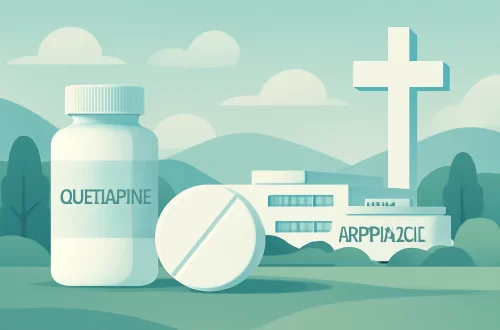
Effective Treatment for Baby Goat Trauma to Teeth Issues
The care of baby goats, or kids, is a rewarding yet intricate endeavor for any farmer or goat enthusiast. As young animals, they are particularly vulnerable to various health issues, one of which is trauma to their teeth. This can arise from multiple sources, including rough play with other goats, accidents during feeding, or even environmental hazards. Understanding the anatomy of goat teeth and the potential problems that can occur is essential for anyone involved in goat husbandry.
Teeth play a critical role in a goat’s ability to eat and thrive. Any trauma can lead to difficulties in feeding, which can subsequently affect their overall health and growth. Recognizing the signs of dental trauma early on is paramount for effective treatment. Moreover, proper dental care can prevent further complications, ensuring that your baby goats remain healthy and active.
In this article, we will explore the various aspects of baby goat dental health, focusing on identifying issues, treatment options, and preventive measures. By being proactive and informed, you can ensure that your goats have the best chance at a healthy and happy life.
Recognizing Signs of Dental Trauma in Baby Goats
Identifying dental trauma in baby goats is crucial for timely intervention. Kids may not always exhibit obvious signs of discomfort, making it important for goat owners to be vigilant. Common symptoms include excessive drooling, reluctance to eat or drink, and noticeable changes in behavior. You may also observe that they are favoring one side of their mouth while eating, which can indicate pain or discomfort in that area.
Another sign to watch for is the presence of broken or missing teeth. As goats are naturally curious and often engage in rough play, they are susceptible to injuries that can lead to dental trauma. If you suspect that your goat has suffered an injury, it’s important to conduct a thorough visual examination of their mouth. Look for any swelling, bleeding, or discoloration of the gums, as these can also be indicators of trauma.
Behavioral changes can also serve as a red flag. If a normally playful and active kid suddenly becomes withdrawn or exhibits signs of distress, it may be a sign that they are experiencing dental pain. Keep an eye on their eating habits; a decrease in food intake can quickly lead to other health issues, including weight loss and lethargy.
Understanding the anatomy of goat teeth can also aid in recognizing issues. Goats have a unique dental structure, including incisors that are primarily used for grazing. If these teeth are damaged, the goat may struggle to consume their regular diet. Regular dental checks are a vital part of goat care, allowing you to catch potential problems before they escalate.
Treatment Options for Dental Issues in Kids
Once dental trauma is suspected, prompt treatment is essential to alleviate pain and prevent further complications. The treatment will depend on the severity of the trauma. In mild cases, simply monitoring the goat’s condition may be sufficient. However, if there are visible injuries, more proactive measures will be needed.
For minor gum injuries or loose teeth, it’s important to keep the affected area clean to prevent infection. You can gently rinse the goat’s mouth with a saline solution to help maintain oral hygiene. This will also provide some relief from discomfort. It’s crucial to ensure that the kid is still able to eat and drink, as dehydration can exacerbate their condition.
In cases of broken or severely damaged teeth, professional veterinary intervention is often necessary. A veterinarian may recommend dental extractions or other surgical procedures if the damage is significant. Pain management is also important, and your vet may prescribe pain relief medication to help manage discomfort during recovery.
After treatment, observe the kid closely for any signs of complications. Ensure that they are eating and drinking normally, and monitor their overall behavior. Providing a soft diet may be beneficial during recovery, as this will make it easier for them to eat without causing additional pain to their teeth.
It’s also important to schedule regular veterinary check-ups to monitor your goat’s dental health. Preventive care can help catch potential issues before they become serious, ensuring a longer and healthier life for your animals.
Preventive Measures for Dental Health
Preventing dental issues in baby goats is far more effective than treating them after they occur. There are several strategies you can implement to promote good dental health in your goats.
First and foremost, providing a balanced diet is essential. Goats naturally require a diet rich in fiber, which helps promote healthy chewing and natural wear on their teeth. Including hay and pasture in their diet can assist in maintaining their dental health. Avoid feeding them excessively hard or abrasive foods that could cause damage to their teeth.
In addition to their diet, environmental safety plays a significant role in preventing injuries. Ensure that your goat’s living space is free from sharp objects or hazards that could lead to dental trauma. Supervision during playtime can also help prevent rough interactions that may result in injuries.
Regular dental check-ups with a veterinarian can help identify potential issues early on. A vet can offer professional cleaning and other preventive care services that will contribute to the overall dental health of your goats. Keeping up with vaccinations and general health care will also support your goats’ immune systems, reducing the risk of infections that could complicate dental issues.
Moreover, training your goats to be calm during handling can make it easier to conduct dental checks and provide any necessary care. Desensitizing them to having their mouths examined can lead to quicker identification of any potential issues.
By implementing these preventive measures, you can ensure that your baby goats have the best possible dental health, reducing the likelihood of trauma and the need for treatment.
Conclusion
In conclusion, the dental health of baby goats is a vital aspect of their overall well-being. Recognizing the signs of dental trauma early on can lead to more effective treatment options, while preventive measures can significantly reduce the risk of issues arising in the first place. Being proactive in your care routines will not only benefit the individual goats but will also contribute to the health of your entire herd.
Remember, if you ever have concerns about your goat’s dental health, it is always best to consult with a veterinarian. Professional guidance will provide you with tailored advice and treatment options to ensure your goats remain healthy and thriving.
**Disclaimer:** This article is for informational purposes only and does not constitute medical advice. Always consult a veterinarian for any health concerns regarding your animals.




